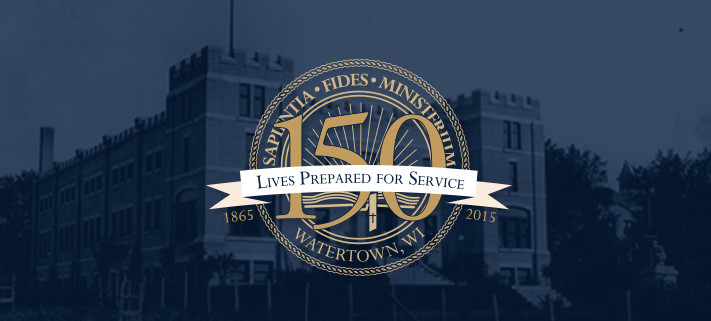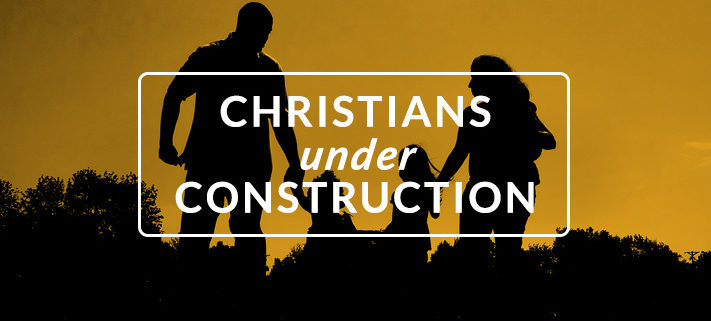We believe as all believers have: Part 11
“We believe in one holy Christian and apostolic Church.”
Joel D. Otto
Catholics. Baptists. Methodists. Presbyterians. Pentecostals. Several flavors of Lutheran. With all of these different church bodies, how can we believe that there is “one holy Christian and apostolic Church”?
There have always been divisions in the church on earth. It is a reality because of false teachers, as Jesus warned (Matthew 7:15) and the apostles wrote (Romans 16:17; Galatians 1:6-9; 1 John 4:1-6). When the Council of Nicaea met in A.D. 325, there were Arians who taught that Jesus was not equal to the Father and Donatists who believed that the validity of the sacraments hinged on the moral character of the clergy.
Yet, down through the centuries the church has confessed: “We believe in one holy Christian and apostolic Church.” So what is meant by these words?
We first need to understand what the word church means. It is translated from a Greek word that means “called out.” Those who belong to the church have been called out of the darkness of unbelief to the light of faith in Jesus by the power of the Holy Spirit working through the gospel (1 Peter 2:9; 2 Thessalonians 2:13,14). Believers in Jesus are the only true members of the one holy Christian and apostolic church.
That’s why we believe that there is only one true church. This one church isn’t equal to a visible organization. We cannot point to a church body or congregation and say, “There is the one true church.” But members of the one church will be found in church bodies and congregations where the gospel is proclaimed and the sacraments are administered according to Christ’s command.
We believe that there is only one church because the only way to be a member is to believe in Jesus as the only Savior. He is the only way, truth, and life (John 14:6). Jesus himself said, “There shall be one flock and one shepherd” (John 10:16). So Christ is the only foundation and cornerstone of the church (1 Corinthians 3:11).
The church is also described as “apostolic” because the only way to learn about Jesus is through the Word of God, the writings of the apostles and prophets. God’s Word—the inspired words God gave to the apostles and prophets—tells us of Christ and is the only source of truth in the church.
Since the Holy Spirit has brought us to faith in Christ, we are a “holy temple in the Lord” (Ephesians 2:21). By faith in Jesus, we are “a chosen people, a royal priesthood, a holy nation, God’s special possession” (1 Peter 2:9). We have an incredible status because the Spirit has brought us into the one church.
Even though false teachers continue to divide the visible church, the one true church will not be overcome because the gospel will continue to be proclaimed (Matthew 16:18; 24:14). And so we continue to confess with confidence as all believers have: “We believe in one holy Christian and apostolic Church.”
Exploring the Word
1. What are the differences between the invisible church and visible churches?
The invisible church consists of all people who believe in Jesus as the Son of God and Savior, no matter when or where they have lived, no matter what visible church they have belonged to (see Ephesians 5:25-27; 1 Corinthians 1:2). Visible churches, on the other hand, consist of people who have claimed membership in those churches. They may believe in Jesus, or they may not. They may be hypocrites. It is not up to us to determine who is or who is not hypocrites or true members of the invisible church. That is the Lord’s work on the Last Day (see 2 Timothy 2:19; Matthew 13:24-30,36-43). There will be members of the invisible church in visible churches where the gospel is proclaimed and the sacraments are administered (Isaiah 55:10,11).
2. Describe the importance of the apostolic nature of the church.
The content of the faith of the invisible church is apostolic, that is, it is the written Word of God which the Spirit inspired the apostles and prophets to write. Likewise, that same prophetic and apostolic Word is the tool of the Spirit to create and sustain true faith in Christ. That’s why Paul speak of the apostles and prophets as the foundation of the church (Ephesians 2:19-22). It is also why Paul can speak of the unity of the church (Ephesians 4:3-6). There is only one faith revealed in the one divinely inspired Word of God worked by the Spirit through that same Word of God. Finally, since the Word does not change, the faith of the church does not change. Believers of the first century are saved and members of the church the same way believers of the 21st century are: through the apostolic Word. “Thus the faith of the church is not fickle, changing from year to year or generation to generation. The faith is firm and changeless in the deposit of faith handed down to us by Christ through his apostolic Word. It is fidelity to that changeless Word that makes the church apostolic” (Deutschlander, Grace Abounds, p. 451).
3. In the original Greek of the Nicene Creed, the word translated “Christian” is actually “catholic.” Literally, the word catholic means “universal.” In what ways does the Roman Catholic Church misuse this word? Why is a proper understanding of this word a comforting concept?
By using the word catholic in its name, the Roman Catholic Church has historically claimed for itself the one universal church or the one “saving church.” While the Roman Catholic Church has changed its stance on this in recent decades, the statements of the Council of Trent still stand that no one outside of the Roman Catholic Church can hope to be saved. The Roman Catholic Church thus equates itself with the holy Christian Church. It equates a visible church with the invisible church. It ignores Jesus’ words in Luke 17:20,21 and John 18:36,37. Even worse, the Roman Catholic Church condemns salvation by faith alone in Christ alone, which is what makes someone a member of the holy Christian Church.
The word catholic is properly understood as referring to the holy Christian Church, the invisible church. This is the one true church consisting of all people who have been called out of the darkness of unbelief to faith in Jesus (see 1 Peter 2:9). This is a comforting concept because my membership in Christ’s church does not depend on my family background, church membership, gender, race, or social standing. It only depends on the Spirit-given faith in Jesus as my Savior, faith given and strengthened through the Word and sacraments. Therefore, I also can be comforted by the fact that there are believers all over the world wherever the gospel of Jesus is proclaimed and the sacraments are administered. I have an invisible, yet real, unity with all who believe in Christ.
Contributing editor Joel Otto, professor at Wisconsin Lutheran Seminary, Mequon, Wisconsin, is a member at Salem, Milwaukee.
This is the eleventh article in a 13-part series on the Nicene Creed. Find this study and answers online after Sept. 5 at www.wels.net.
SUBMIT YOUR STORY
Do you have a manuscript, idea, or story from your own life you’d like to share for use in Forward in Christ or on wels.net? Use our online form to share it to our editorial office for consideration.
SUBSCRIBE TO FORWARD IN CHRIST
Get inspirational stories, spiritual help, and synod news from Forward in Christ every month. Print and digital subscriptions are available from Northwestern Publishing House.
Author: Joel D. Otto
Volume 102, Number 9
Issue: September 2015
Copyrighted by WELS Forward in Christ © 2021
Forward in Christ grants permission for any original article (not a reprint) to be printed for use in a WELS church, school, or organization, provided that it is distributed free and indicate Forward in Christ as the source. Images may not be reproduced except in the context of its article. Contact us



